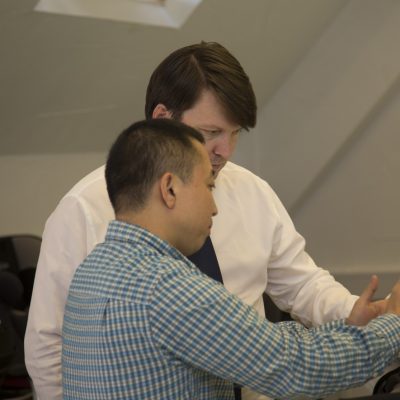
JMDA At The Forefront Of Developing CRS Regulation
JMDA is Europe’s leading Child Restraint System (CRS) independent design specialist, having designed over 80 child seats for various markets around the world over the last 30 years. The company remains at the forefront of innovative CRS design and is well known in the industry for their progressive product design and extensive knowledge of evolving CRS regulation. Their unique full market-specific fitting-lists are essential when considering the design of new and advanced CRS.
JMDA works with various CRS regulations, not just the well-known European regulation UN ECE R44 in its various incarnations and the concurrent and successor regulation R129, known as ‘i-Size’. R129 ‘i-Size’ builds upon R44 by incorporating a rear-facing requirement for older infants and toddlers to at least 15 months, rather than the previous limit of up to 9 months. Side impact testing is also featured in the new regulation, resulting in different designs and the elimination of ‘backless’ booster cushions which were still permitted under R44. The long-standing R44 regulation also serves as a basis for the China CRS regulation GB27887, with some national deviations, which is a part of the all-encompassing ‘China Compulsory Certification’ (CCC).
Chris Raynor who manages JMDA’s vehicle compatibility services explains, “CRS regulation is forever developing, as designers of child restraint systems for customers throughout the world, it is imperative we stay up to date with the changes and understand local regulations and requirements in specific regions. The USA has long had a regulation pertaining to CRS, the FMVSS213, which differs from R44 in various aspects and allows the use of a 2-point belt for certain types of restraints, such as with the base for an infant carrier. Australia and New Zealand use a combined Standard AS/NZS1754. It categorises CRS in a similar way to R44, with A-G classes, but specifies more combined classes for multiple-use CRS, such as AB and BE.” He adds “Brazil, a major new market for CRS also utilises its CONTRANS regulation based on R44, but now also requires local type-approval for such products whereas approval from other national authorities was previously accepted. This is why JMDA has expanded its knowledge of the passenger-vehicle market to include this fascinating and vast country.”
Japan also has a local regulation, which is similar to R44, but in that market the side-facing ‘lateral’ CRS are quite popular. JMDA has a unique fitting-database for Japan, covering the many unique vehicles in that market and the company is adding South Korea to its portfolio, providing near-global coverage for the CRS industry.
The multi-regulation CRS is a difficult challenge for the industry yet JMDA’s comprehensive global knowledge and 30 years’ experience and expertise across all aspects of child restraints allows them to support companies looking to design and sell CRS throughout the world.
The company’s membership of CLEPA, the European Association of Automotive Suppliers along with The Society of Motor Manufacturers and Traders (SMMT) puts JMDA ahead of their competitors. With access to global automotive suppliers and wider influential governing bodies, JMDA have a fantastic opportunity to offer technical advice with regards to child restraint systems and gain further knowledge of the industry.
For further details about JMDA and their design of progressive CRS, please call +44 (0) 1386 426100, alternatively email [email protected].